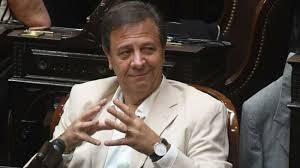
Global stock markets experienced a significant downturn on Monday, and Argentine assets were no exception. Since their historic high on January 7 of this year, the Argentine market has accumulated a decline of 25% in pesos and 27% in dollars. Global uncertainty has intensified due to the trade policies of the Trump administration, raising concerns about short-term economic prospects.
Gustavo Ber, an economist, commented that Trump's recent statements have contributed to economic concerns, generating a consensus on a 'detox' or transition phase due to ongoing reforms. Despite positive expectations around a potential deal with the IMF, Argentine assets are affected by a climate of global risk aversion.
The wholesale dollar has decreased by 50 cents, widening the exchange gap to 14.9%. So far in March, the panel of leading stocks has shown a 3% decline in dollars and pesos. The Central Bank has maintained a buying balance of 226 million dollars so far in March, while gross international reserves have fallen to 27.73 billion dollars, the lowest level since September 30.
The Argentine financial landscape is influenced by various factors, including the country risk measured by JP Morgan, which has increased, and the decrease in international reserves. Uncertainty surrounding a potential agreement with the IMF and global economic policies have impacted the markets, creating a climate of caution among investors.
In the midst of this situation, stocks on Wall Street have recorded significant declines, and the Nasdaq index marked the largest daily drop since 2022. Argentine stocks, both in international and local markets, have experienced losses, reflecting the current financial instability. Experts agree that the economic outlook has become more complex, generating uncertainty and tensions in financial markets.













